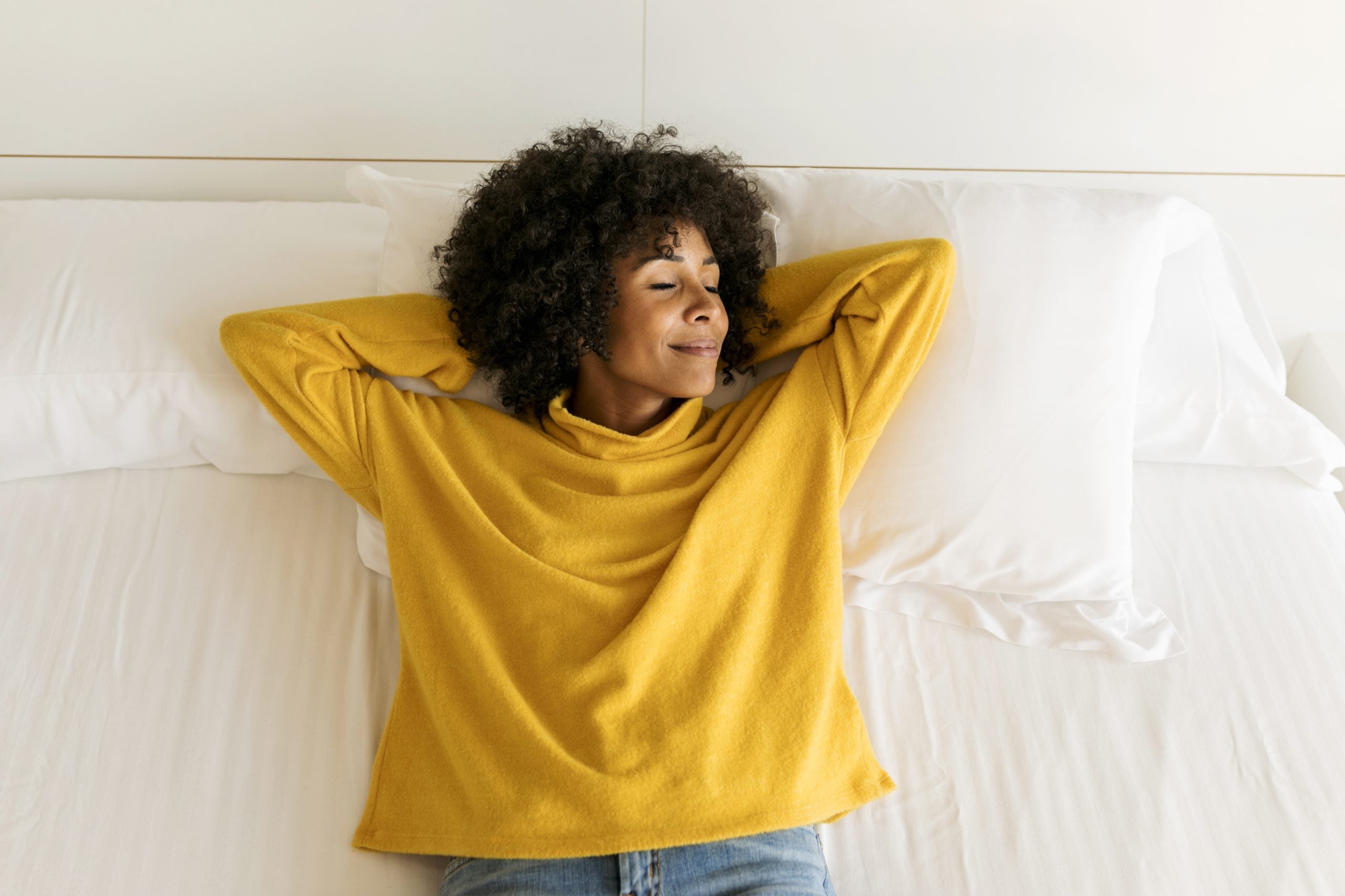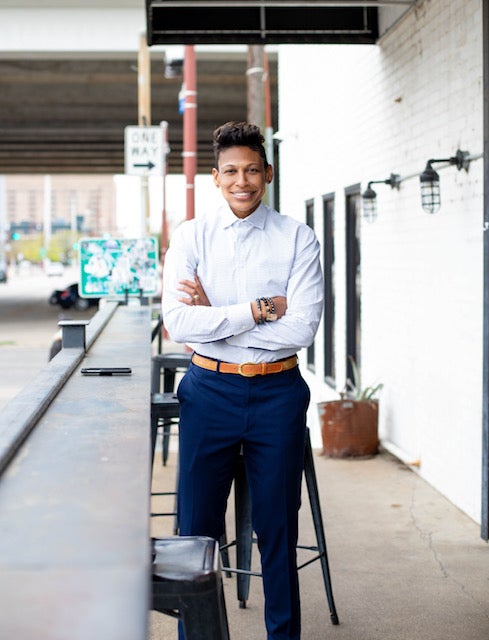
Khaliah O. Guillory was tired of sleeping in her car. Two years ago, she was an executive at a Fortune 500 company in the Greater Houston area working on a 75-percent travel schedule. When she wasn’t cramming work into a four-day week, she would often take naps between her commute into the city.
“I would grind the whole weekend to catch up, and then I would do the cycle all over again, so I was sleep-deprived,” Guillory says. “I realized me working 80 plus hours a week and traveling, I couldn’t have been the only one who was beyond exhausted.”
She was right. Through quick polls on her social media platforms, she found none of her peers were sleeping well or long enough and found themselves getting rest whenever and however they could during their workdays.
Always passionate about numbers and napping, Guillory dedicated 10,000 hours to studying sleep habits and productivity, finding game-changing data: a NASA study determined that a 26-minute nap can increase productivity by up to 34 percent and alertness by 54 percent. Guillory’s beta testing with professionals concluded that even a 20-minute nap can increase productivity by 60 percent.
She also learned that Black people are hit harder by sleep deprivation compared to other races. “We did three rounds of beta testing finding that naps improve your productivity, your mental stressors, they regulate your weight and decrease the chances of you having cardiovascular disease and diabetes,” Guillory says. “These are all the things that are plaguing the Black community.”

A White-Glove Experience
Within a year of extensive research and testing, Guillory exited her job and opened Nap Bar in April of 2019, as a white-glove sleep experience offering communities and companies onsite and en suite sleep services.
The initial model consisted of membership levels for naps in a premium suite to recharge, whether it be between work meetings, after a long flight or simply because “nappers” want to sleep uninterrupted. Guillory says their clients run the gamut from professionals, entrepreneurs to stay-at-home parents and travelers. “This is for sleepy humans, and sleepy humans are everybody, and they’re everywhere.”
Despite the innovation, it took time to convince people to pay her to sleep, but the Houston resident says the rest you get at home where you may have roommates, partners or children or poor noise reduction and lighting doesn’t compare to the Nap Bar experience.
Nappers are serviced by their own Comfort Concierge and guaranteed quality sleep in a device-free zone with comfy beds and an array of sleep aids, including sleep masks, lighting and brain waves for sleep in an organic and sustainable suite set at a temperature optimum for rest.
In late 2019, Nap Bar moved to a new location in the Houston Galleria, a high-end mall for foot traffic and transitioned to a pop-up model to serve locations like convention centers and airports, frequently visited by people who need to sleep during long days (think: passengers or air staff during an extended layover).
For people still on Team No Sleep, Guillory says the numbers don’t lie. Every year, 1.2 million Americans miss work to catch up on sleep, rather than run personal errands, and while the CDC suggests seven hours or more of sleep per night, Black people only get “short sleep,” defined as less than six hours per night. In addition to increasing personal wellness, Nap Bar also wants to influence wellness in the workplace to increase productivity and provide employees with self-care they may not participate in independently.
COVID-19, A Change Of Plan
In recent months, Guillory and her team had been negotiating corporate contracts to include a daily Nap Bar experience in employer benefit packages for companies of all sizes and makeups.
However, 2020 had other plans. As the coronavirus spread and the world slowly began to close up shop, the Nap Bar was also hit hard. The pandemic affected Guillory’s business as well as key partners. So the entrepreneur had to adapt…and fast.
Where to start? Guillory did what she does best: she looked at the data. Survey results indicated that 85 percent of Nap Bar customers’ sleep had been negatively impacted during the global pandemic.
As a result, their service now includes the Better Sleep Box, which features key sleep aids you’d receive during a nap session to bring quality sleep to clients at home. They also ramped up client engagement with #WellnessWednesday virtual events to discuss physical and mental health while in quarantine.
“It aligns with solving the problem of sleep deprivation,” Guillory says. “How can we help you sleep better?”
Lastly, an app, Nap Nation, is in development, which gamifies napping to decrease sleep deprivation and bolster overall wellness and creativity among users.
“I really want us to have intentional lives and longevity with the people that we love,” says Guillory.